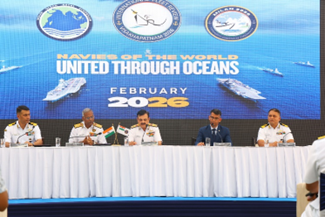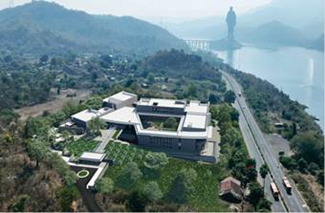Indian Polity
Investigating agencies cannot force lawyers to reveal client info, says SC:
-
- The Supreme Court held that investigating agencies cannot summon lawyers and coerce them to disclose any professional communication made in confidence with their clients.
- A three-judge Bench headed by Chief Justice of India B.R. Gavai said compelling a lawyer to prejudice his or her own client, without the latter’s consent or knowledge, amounted to an “outrageous” infringement of the client’s constitutional right against self-incrimination under Article 20(3) (Fundamental Rights that prohibit self-incrimination) of the Constitution.
- Principle: nemo teneteur prodre arcussare seipsum
- Protection available only to criminal cases.
- It is for the investigator to obtain independent evidence of the culpability of the accused.
- The judgment recorded that lawyers were not at the beck-and-call of probe agencies. Their ability to protect their clients without fear was part of their fundamental rights under Article 19(1)(g) (freedom to practice any profession or to carry on any occupation, trade or business) and Article 21 of the Constitution, coupled with the provisions of the Advocates Act, 1961.
- The court said lawyer-client privilege was protected in Section 132 of the Bharatiya Sakshya Adhiniyam (BSA) of 2023, which mandates that an advocate cannot be coerced into revealing any information with respect to the client he represents or the cause he is engaged to prosecute or defend.
- The confidentiality of the lawyer-client communication can be waived only with the consent of the client or if it was in furtherance of an illegal purpose or a crime or fraud is committed as a result.
(TH)
International Developments
Asia-Pacific Economic Cooperation (APEC):
-
- Context: The APEC summit began on 31st October 2025 in Gyeongju (South Korea). Leaders reaffirmed cooperation amid trade tensions and slow growth.
- Regional trade growth projected at only 0.4%, with GDP growth revised to 2.6%.
- South Korea launched “APEC AI Initiative” to tackle ageing and low birth rates through technology
- APEC is a 21-member (Australia, Brunei Darussalam, Canada, Chile, People’s Republic of China, Hong Kong, China, Indonesia, Japan, Republic of Korea, Malaysia, Mexico, New Zealand, Papua New Guinea, Peru, The Philippines, The Russian Federation, Singapore, Chinese Taipei, Thailand, United States of America, Vietnam) forum promoting free and open trade, economic integration, and sustainable growth in the Asia-Pacific region.
- Decisions are consensus-based and non-binding.
- Focus areas have expanded to digital trade, AI, supply-chain resilience, sustainability, and demographic change.
- Significance:
- APEC economies account for about half of global trade and GDP.
- Represents nearly 40% of the world’s population
- Acts as a major platform to shape future trade and digital economic architecture.
- Though India is not a member, APEC’s policies influence regional supply chains and trade norms.
(TH)
Comprehensive nuclear test-ban treaty (CTBT):
-
- Adopted: 1996 by the UN General Assembly.
- Objective: To ban all nuclear explosions for both civilian and military purposes, in all environments.
- A multilateral, legally binding treaty aimed at achieving nuclear disarmament and non-proliferation.
- Supervised by: The Comprehensive Nuclear-Test-Ban Treaty Organization (CTBTO), headquartered in Vienna, Austria.
- Status: The Treaty has not yet entered into force, as eight specific states (including the U.S., China, India, Pakistan, North Korea, Iran, Israel, and Egypt) have not ratified or signed it.
- India, Pakistan, and North Korea have neither signed nor ratified the CTBT.
- Monitoring System: The International Monitoring System (IMS) under CTBTO detects nuclear explosions using seismic, hydroacoustic, infrasound, and radionuclide technologies.
- Significance: Plays a key role in preventing qualitative advancement of nuclear weapons and supports the global non-proliferation regime.
- Complements the Nuclear Non-Proliferation Treaty (NPT) in achieving global nuclear restraint.
(TH)
3rd Edition of International Strategic Engagement Programme (IN-STEP):
-
- Context: The Vice-President of India, C. P. Radhakrishnan, addressed the 3rd edition of IN‑STEP at the Vice-President’s Enclave in New Delhi.
- He highlighted the need for strategic global cooperation in an era of interconnected challenges such as climate change, public health, AI, big data, cyber-crime, terrorism and narcotics trafficking.
- Emphasised the responsible use of emerging technologies (AI, big-data, automation), balancing innovation with vigilance and preparedness.
- IN-STEP is organised by: India’s National Defence College (NDC).
- Purpose: To promote strategic dialogue and cooperation among senior national security and defence officers from India and friendly foreign nations.
- Participants: Includes officers from several Global South countries; the 3rd edition (2025) saw delegates from 24 nations.
- Focus Areas: Global security challenges — terrorism, cyber threats, AI, big data, climate change, and public health.
- Aim: To strengthen India’s strategic partnerships and promote the spirit of “Vasudhaiva Kutumbakam” (the world is one family).
(TH)
Defence & Security
Indian Navy’s upcoming exercises:
-
- Three major international maritime events — the International Fleet Review 2026, Exercise MILAN 2026, and the Indian Ocean Naval Symposium Conclave of Chiefs — to be held at Visakhapatnam from February 17 to 25.
- These events align with the MAHASAGAR vision of inclusive maritime growth.
- MAHASAGAR is Mutual And Holistic Advancement for Security And Growth Across Regions.
- Exercise MILAN was launched in 1995 with four navies at Port Blair.
- International Fleet Review began in 2001, Mumbai.
- Indian Ocean Naval Symposium:
- Voluntary initiative of littoral states of Indian Ocean.
- Conceived by Indian Navy in 2008.
- First held in Feb 2008 at New Delhi.
- Members: 36

(TH)
History, Art & Culture
Museum of Royal Kingdoms of India:
-
- PM laid the foundation stone for the Museum of Royal Kingdoms of India, on October 31 (on the eve of Rashtriya Ekta Diwas) at the Statue of Unity in Ekta Nagar, Gujarat.
- This museum, costing ₹367 crore, will have four thematic galleries.
- Objectives:
- To document and display the rich legacy of India’s royal and princely states.
- To preserve artefacts and archival materials that reflect India’s royal traditions and their contribution to the nation’s unity and cultural identity.
- To educate and engage the public on the historical process of integration, the contribution of the princely states and the evolution of India’s governance and cultural unity.
- To serve as a centre for research, preservation, and public learning on India’s regal and democratic heritage.

(TH)
Captions and Quotations
International Relations (UN Reforms):
-
- Structural reform of the UNSC is necessary and long overdue.
- Institutions do not survive by remaining unchanged; they survive by evolving responsibly.
- Reform does not always require new doctrine. Sometimes, it requires remembering first principles. Peace must be sustained. Political commitments must be accompanied. Diplomacy must be disciplined. Institutions must be built not for moments but for processes.
(TH)
Miscellaneous
‘Aabhar’ online store:
-
- In a bid to promote local talent, the Indian Railways will patronise the newly launched ‘Aabhar’ online store that will showcase a range of exquisite gift items manufactured by indigenous tribes, handloom weavers and others coming under the ambit of One District One Product (ODOP) and Geographical Indication (GI) products.
- The online store hosted by the Government e-Marketplace (GeM) sources gift items exclusively from the Central Cottage Industries Emporium (CCIE), Khadi and Village Industries Commission (KVIC), and various Central and State Handicraft and Handloom Emporiums.
(TH)
PRACTICE MCQ’S
Q1. Consider the following statements regarding the Asia-Pacific Economic Cooperation (APEC):
1. Decisions taken within APEC are legally binding on all its member economies.
2. At the 2025 APEC Summit in South Korea, members launched an “APEC AI Initiative” to address demographic challenges and promote technological cooperation.
Which of the statements given above is/are correct?
a) 1 only
b) 2 only
c) Both 1 and 2
d) Neither 1 nor 2
Answer: B
Statement 1 is incorrect: APEC’s decisions are voluntary and consensus-based, not legally binding on member economies.
Statement 2 is correct: The 2025 APEC Summit in Gyeongju, South Korea, saw the launch of an “APEC AI Initiative” aimed at tackling demographic challenges such as ageing populations and promoting cooperation in artificial intelligence and innovation.
Q2. Which one of the following statements about the International Strategic Engagement Programme (IN-STEP) is incorrect?
a) It is organised by India’s National Defence College (NDC).
b) It aims to enhance strategic cooperation and dialogue among senior security officers from India and partner nations.
c) Its 3rd edition has recently held in New Delhi.
d) It is primarily a trade and economic forum promoting free trade among Global South nations.
Answer: D
Explanation:
Statement 4 is incorrect: IN-STEP is not a trade forum; it focuses on strategic, defence, and security cooperation, not economic liberalisation.
Q3. Consider the following statements regarding the Comprehensive Nuclear-Test-Ban Treaty (CTBT):
1. The CTBT bans all nuclear explosions for both civilian and military purposes in all environments.
2. The Treaty is ratified by all the nuclear-weapon states.
Which of the statements given above is/are correct?
a) 1 only
b) 2 only
c) Both 1 and 2
d) Neither 1 nor 2
Answer: A
Explanation:
Statement 1 is correct: The CTBT comprehensively bans all nuclear explosions, regardless of purpose or location.
Statement 2 is incorrect: The CTBT has not yet entered into force because several key states, including the U.S., China, India, Pakistan, and North Korea, have not ratified or signed it.
Q4. Consider the following statements regarding Exercise MILAN:
1. It is a biennial multilateral naval exercise hosted by the Indian Navy.
2. It aims to enhance interoperability, cooperation, and maritime security among participating navies.
3. Only Indian naval ships participate in Exercise MILAN.
Which of the statements given above are correct?
a) 1 and 2 only
b) 2 and 3 only
c) 1 and 3 only
d) 1, 2 and 3
Answer: A
Explanation:
Statement 1 is correct: MILAN is a biennial exercise hosted by India.
Statement 2 is correct: its focus is on interoperability and maritime cooperation.
Statement 3 is incorrect: multiple foreign navies from the Indo-Pacific region and beyond participate alongside India.
Spread the Word



